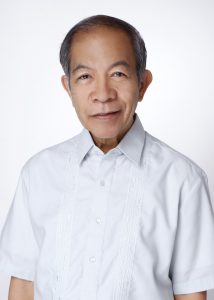MONTHLY NEWSLETTER, VOL. 29, NO. 5 – MAY 2025
“It makes a difference when we get together as a global community”
Only a few weeks into her position, UN DESA’s new Assistant Secretary-General for Policy Coordination, Ms. Bjørg Sandkjær, met with UN DESA Voice for a one-on-one interview. Bringing over 26 years of experience from working within the area of policymaking and international development, we spoke about her background, her passion for international solidarity, her new role, and the difference that international development makes for people around the world.
As we caught up with Ms. Sandkjær in the middle of April, the excitement and energy stemming from the ongoing ECOSOC Youth Forum was palpable at UN Headquarters. Considering her own experience as a youth delegate, the setting was fitting. “There are lots of young people from all over the world coming together in support of multilateralism and the United Nations,” Ms. Sandkjær said. “I look forward to meeting them,” she added, referencing her participation in the event.
Early commitment to international solidarity
Ms. Sandkjær spent part of her childhood growing up in Zambia, where she witnessed first-hand some of the great injustices in society. “This was the start of my commitment to international solidarity,” she said.
“Given my great interest in international collaboration, in dialogue, in bringing countries together to find solutions, I really wanted to work for the United Nations,” Ms. Sandkjær continued. Eventually, her commitment resulted in her successfully passing the National Competitive Recruitment Examination in 2001.
“A dream come true for me,” she said, describing how she started her path at the UN Economic Commission for Africa as a demographer, before moving on within the UN system.
Change can be achieved when we work together
While speaking about efforts towards improving people’s lives around the world, Ms. Sandkjær reflected on how change can truly be achieved when we all work together.
“I have seen great progress in the years that I’ve been engaged in the multilateral arena,” she said, recalling the International Conference on Population and Development in Cairo in 1994, when she participated as a youth representative of the World Council of Churches.
“30 plus years since then, we’ve seen that shifts really manifest itself in people’s lives, in communities all over the world,” she said. “It means something that we get together in this space, that is the United Nations,” she said. “We make decisions and then we make them happen.”
“For me, it’s very rewarding to see people being able to raise their voice and to voice their opinion,” Ms. Sandkjær continued, reflecting on what she finds being the most fulfilling working with international development and policymaking.
“It’s quite amazing to be here in the General Assembly Hall, where […] the world gets together,” she said, adding that “we don’t have to agree on everything, but we discuss, we listen to each other, and we come to agreements around important issues for people’s lives.”
Data is the foundation of our work
Ms. Sandkjær also discussed the critical importance of data and how it is the foundation of our work. “It sounds boring, but it is really at the heart of knowing where the problems are, knowing where the issues are, and then being able to figure out how to address them,” she said, naming several vital areas where data makes a difference in our lives; like censuses, surveys, civil registration and tracking progress of the Sustainable Development Goals (SDGs).
Discussing some of the events this year, and some of which she will also be overseeing in her role as Assistant Secretary-General, Ms. Sandkjær mentioned the Statistical Commission and the Commission on Population and Development, which completed their sessions earlier this spring. She also described the significance of the fourth International Conference on Financing for Development, the High-level Political Forum (HLPF) this summer, and her role in managing the planning and preparation for the Second World Summit of Social Development, which will take place in Qatar in November.
International development makes a difference
As we wrapped up our interview, we asked Ms. Sandkjær what she wants people to know about international development and the difference it makes for people on the ground? “The main message from me is that it works, it makes a difference,” she said.
“When we get together as civil society, as academia, as a private sector, as Member States, as the UN, we can eradicate poverty. We can achieve social justice, and we have the experience. We have the results and the examples to show that it really works.”
To learn more about Ms. Sandkjær’s background and experience, access her biography here. Follow Ms. Sandkjær on LinkedIn here.
Expert Voices
The 2025 STI Forum: A decade of bridging frontier knowledge and policy for global progress
Pioneering scientists and innovators will descend upon New York this month for the UN’s Science, Technology and Innovation Forum. We spoke with our expert, Alex Röhrl, ahead of the Forum about how the Forum has brought together governments, scientists, and entrepreneurs to share new ideas and technology solutions that are making a real difference in fighting poverty, protecting the planet, and improving lives around the world for the past decade.
This year, the Forum is celebrating its 10th anniversary. What impact has the Forum had so far, in leveraging science, technology and innovation to boost progress on the global goals?
“Since its inception in 2016, the UN’s Forum on Science, Technology and Innovation has become the UN’s principal multi-stakeholder hub for bridging science and policy to achieve humanity’s goals and aspirations.
As the flagship annual event of the Technology Facilitation Mechanism, it has reintegrated science and technology discourse into UN Headquarters after decades of absence, catalyzing a wave of initiatives across the UN system. The Forum has brought together governments with thousands of innovators, researchers and entrepreneurs – many new to the UN – stimulating cross-disciplinary, cross-sectoral dialogue.
The Forum has helped surface and scale innovative solutions – ranging from solar-powered health diagnostics to AI for sustainable agriculture. Its science-policy briefs, compiled through global open calls, have addressed frontier areas like synthetic biology, digital public goods and carbon removal.
The Mechanism’s Inter-Agency Task Team now spans 51 UN entities working collaboratively, among others, on capacity-building, including national science and technology roadmaps, and analysis of frontier science and technology developments. Importantly, the Forum fosters inclusivity, with high participation from women scientists and stakeholders from developing countries, ensuring global technological progress is informed by diverse voices.”
What are some of the recent innovations that will help us advance sustainable development and improve peoples’ lives?
“Recent innovations showcased at past Forums offer concrete pathways toward the achievement of our global goals and aspirations. In 2024, youth-led innovations included, among others, inflatable flood barriers for climate resilience, off-grid milk pasteurizers enhancing rural food safety and portable solar-powered air pollution detectors for urban health monitoring.
On the frontier of science, the convergence of biotechnology and AI is enabling “labs-on-a-chip” that democratize access to genomic analysis, empowering community health surveillance and local biotech development – even in resource-limited settings. AI models are now being developed to optimize water use in agriculture, predict crop yields and enable early disease detection in plants and livestock.
Another promising area is sustainable materials. Researchers are developing biodegradable alternatives to plastics using microbes and seaweed. Meanwhile, the miniaturization and affordability of clean energy tech – like low-cost solar panels and microgrids – is helping electrify last-mile communities.
Many of these innovations emerge from the Global South, reflecting the growing strength of distributed innovation ecosystems. The Forum’s role has been pivotal in elevating these solutions onto the global stage and connecting innovators with funders and policy platforms.”
During this year’s Forum, there are sessions that connect with major upcoming events to protect our ocean and advance financing for sustainable development. Can you tell us how the Forum connects with these events, and how it also works to help solve some of the pressing issues that these events address?
“The Forum’s 10th session strategically aligns with two major milestones: the 2025 UN Ocean Conference and the Fourth International Conference on Financing for Development. This alignment isn’t accidental – it reflects the Forum’s growing role in broader sustainable development processes. This year’s Forum will have dedicated thematic sessions on oceans and coastal ecosystems and on financing science and technology.
On oceans, the Forum explores science-based innovations for marine protection, from satellite-based fisheries monitoring to ocean-based carbon removal and blue biotechnology. In previous sessions, it highlighted the need for better marine data ecosystems and equitable access to ocean technologies, especially for small island developing States.
On financing, the Forum plays a bridging role, linking innovators with development finance actors. It showcases scalable technologies requiring investment and emphasizes the need for STI-inclusive public finance frameworks. It also builds the case for larger investments in science and technology as catalytic for overall progress, offering co-benefits in health, education and climate.
By convening technologists, policymakers and financiers in one space, the Forum fosters integrated solutions—like financing mechanisms to support community-driven tech innovations or blended finance for climate-smart infrastructure. It operates as a connector, incubator and catalyst across both themes.”
Artificial intelligence is revolutionizing our world. What do you see as some of the actionable pathways for AI to reduce inequalities, promote innovation and empower communities worldwide?
“AI holds immense potential to address global inequalities—but only if deployed inclusively. The STI Forum has emphasized that we must not simply ‘apply’ AI to existing systems but co-design it with affected communities to avoid reproducing biases or exclusions.
Actionable pathways include expanding AI capacity-building in the Global South through open-source tools, partnerships with research institutions and South-South collaboration. Community-driven AI projects—like early warning systems for floods or AI-assisted translation for endangered languages—can enhance resilience and preserve cultural diversity.
Another promising avenue is AI for public services. AI-powered health diagnostics can bring advanced care to remote clinics. In agriculture, AI can empower smallholder farmers with real-time guidance on planting and irrigation, improving yields and incomes.
Crucially, the Forum has called for governance innovation. This includes global norms for ethical AI, inclusive data governance and human rights-based frameworks. It has also advocated for investment in and sharing of AI research and infrastructure and the establishment of interdisciplinary science-policy interfaces to guide responsible AI scaling.
The 2025 STI Forum will continue this momentum, with a special focus on AI, helping policymakers and technologists chart equitable, innovative paths forward.”
For more information visit the STI Forum 2025 website.
Things You Need To Know
6 takeaways from the World Social Report 2025
The world has seen extraordinary social and economic progress over the past three decades. Yet, most people are dissatisfied with their lives: 60 per cent of the world’s population are struggling and 12 per cent are suffering, according to a recent global poll. Many also believe that life is worse now than it was 50 years ago. These are some of the key findings from the newly released World Social Report 2025. Here are 6 main takeaways.
1. The social contract is under threat
Rising insecurity and inequality are eroding trust and straining social bonds. While recent crises put insecurity and distrust in the spotlight, these problems have been building for decades.
2. Many people remain one misfortune away from poverty
More than a third of the world’s population lives on between $2.15 and $6.85 a day. Even a minor setback can push people into extreme poverty. In South Africa, for instance, 80 per cent of people experienced poverty at least once between 2008 and 2015.
3. Inequalities persist
Two-thirds of the world’s population live in countries where income inequality is growing. Without urgent action, leaving no one behind will remain a distant goal by 2030.
4. Insecurity and inequality are undermining cohesion and fueling distrust
Over half of the global population has little or no trust in their government. Alarmingly, trust levels have been declining from one generation to the next. The rapid spread of disinformation is exacerbating these troubling trends.
5. Market-first policies have failed to deliver inclusive social progress
Decades of deregulation, privatization, and austerity have sparked social backlash, sowing distrust and political anger.
6. Governments and the international community can chart a different course
Overcoming today’s social crisis and accelerating progress towards the Sustainable Development Goals requires fundamental shifts in policy, institutions, norms, and mindsets. The World Social Report 2025: A New Policy Consensus to Accelerate Social Progress, builds the case for a new policy consensus anchored in three principles—equity, economic security for all, and solidarity—essential to strengthening the three dimensions of sustainable development.
Explore the findings of the report here.
Photo credit: UN DESA
More from UN DESA
-
Read more here: https://desapublications.un.org/un-desa-voice/may-2025
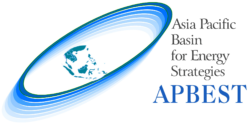

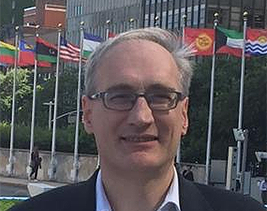
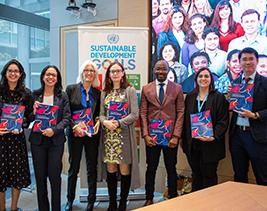
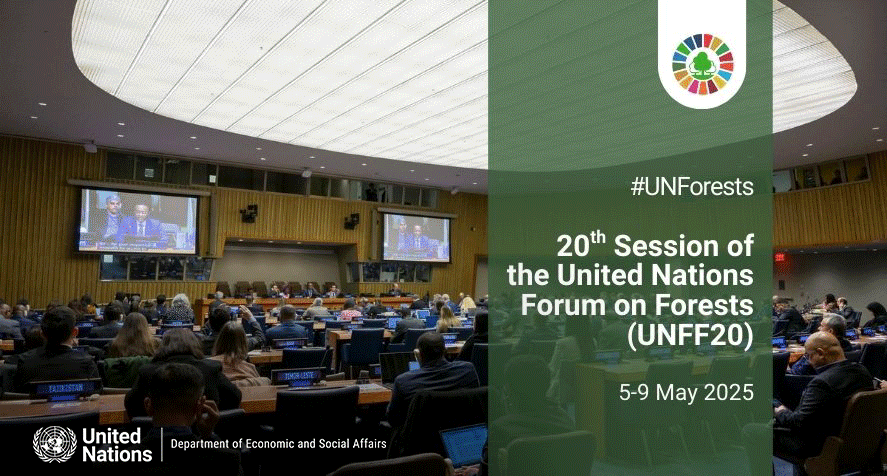
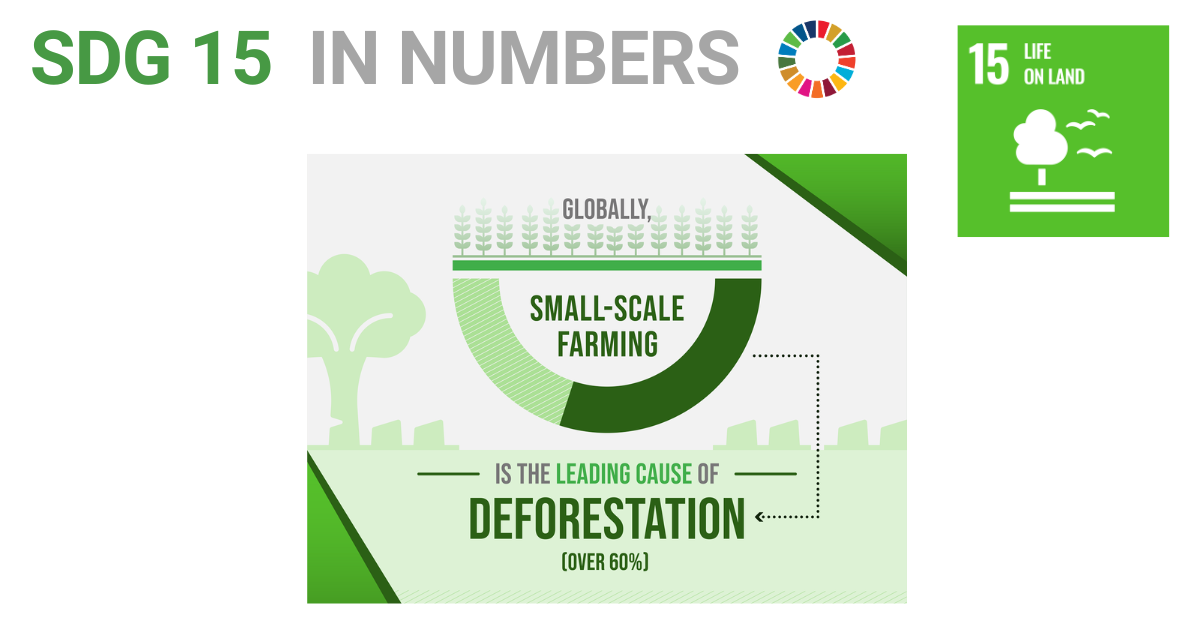
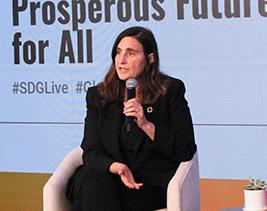
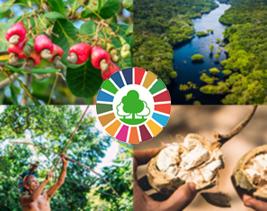

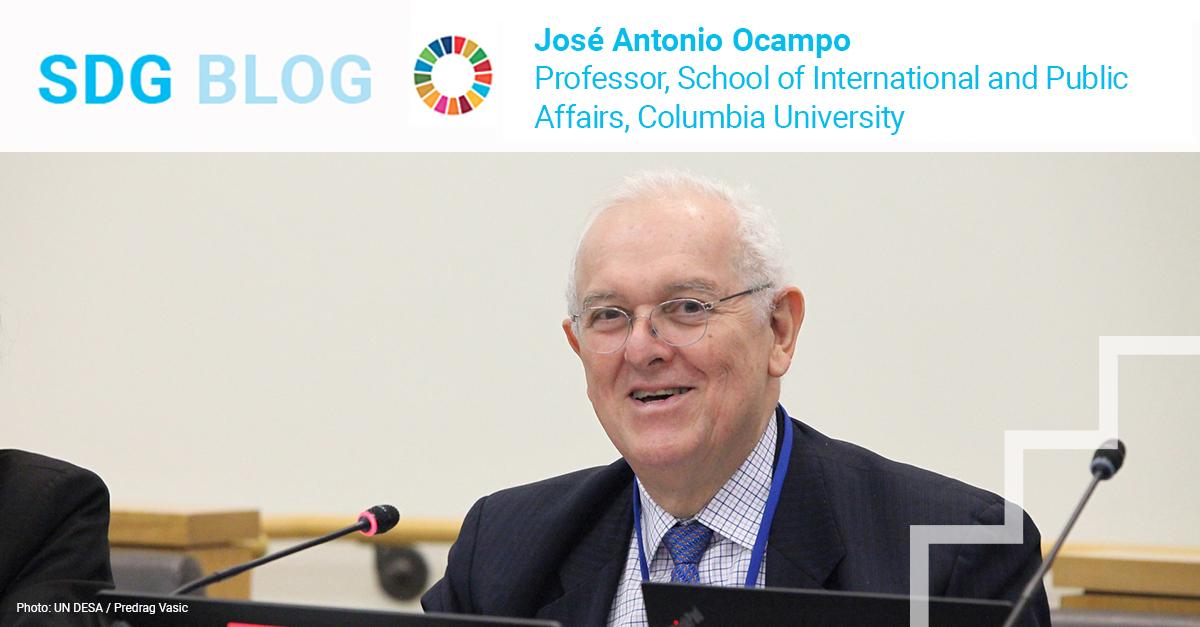
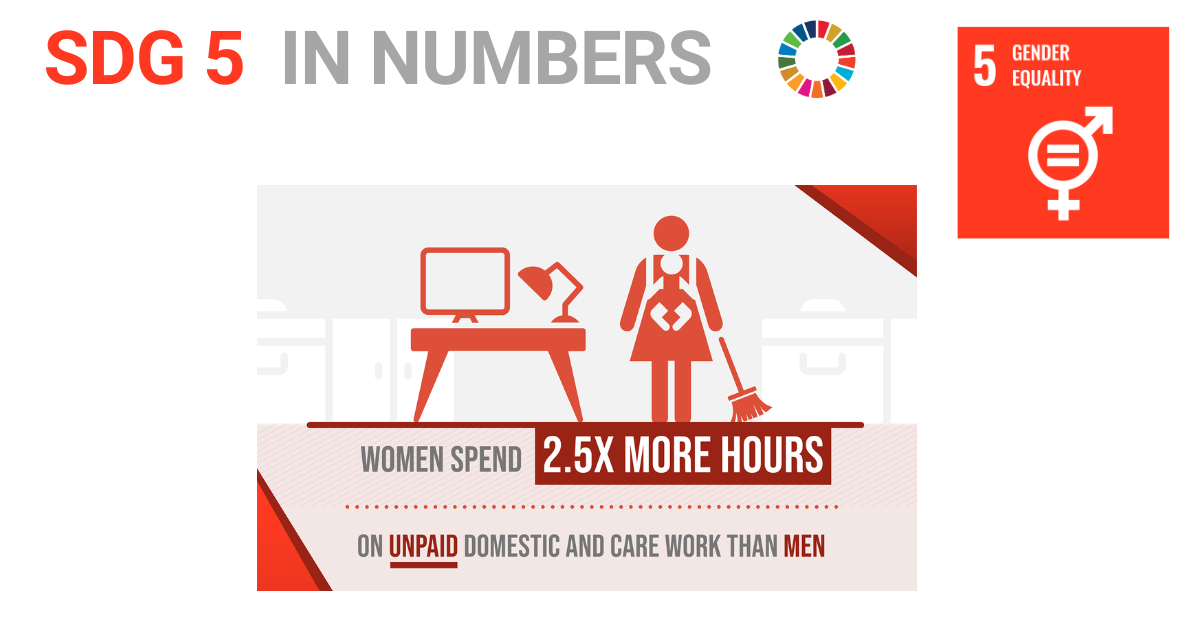
 Solar energy is the most abundant of all energy resources and can even be harnessed in cloudy weather.
Solar energy is the most abundant of all energy resources and can even be harnessed in cloudy weather.